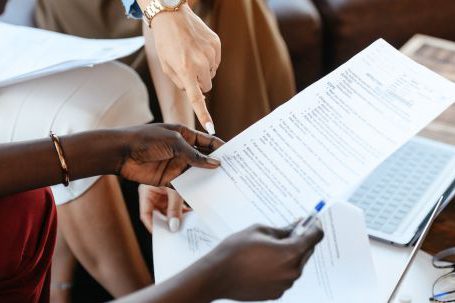Effective teamwork is crucial for the success of any organization. When individuals work together cohesively and collaborate effectively, tasks are completed more efficiently, goals are achieved, and a positive work environment is fostered. However, building and maintaining effective teamwork skills requires effort and commitment from all team members. In this article, we will explore some key strategies to develop and enhance teamwork skills.
Clear Communication
Effective communication is the foundation of any successful team. Without clear and open lines of communication, misunderstandings and conflicts can arise, leading to inefficiency and frustration. To foster effective communication, team members should actively listen to one another, ask clarifying questions, and provide feedback when necessary. Additionally, utilizing various communication tools, such as email, video conferencing, and project management software, can help facilitate seamless information exchange.
Establishing Trust
Trust is an essential component of effective teamwork. Trust allows team members to feel comfortable sharing ideas, taking risks, and relying on one another. Building trust requires consistent actions and transparency. Team members should be reliable, accountable for their commitments, and demonstrate integrity in their interactions. Establishing trust also involves creating a safe space where individuals feel comfortable expressing their opinions and challenging ideas constructively.
Collaboration and Cooperation
Successful teams thrive on collaboration and cooperation. When team members work together towards a common goal, they can leverage each other’s strengths and expertise to achieve optimal results. Encouraging collaboration can be achieved by assigning tasks that require different skill sets, promoting cross-functional training, and facilitating brainstorming sessions where ideas can be freely exchanged. Cooperating with team members also involves being flexible and adaptable, willing to compromise when necessary to achieve the best outcome for the team.
Effective Conflict Resolution
Conflict is inevitable in any team setting. However, what sets successful teams apart is their ability to resolve conflicts in a constructive manner. Addressing conflicts promptly and directly, rather than avoiding or escalating them, is crucial. Active listening, empathy, and seeking common ground are effective techniques for resolving conflicts. It is important to remember that conflict, when handled properly, can lead to growth and improved team dynamics.
Embracing Diversity
Diversity within a team brings a range of unique perspectives, experiences, and ideas. Embracing diversity is vital for building effective teamwork skills. Recognizing and valuing the differences among team members fosters an inclusive environment where everyone feels heard and appreciated. Encouraging diverse participation in decision-making processes and team discussions can lead to innovative solutions and increased team morale.
Continuous Learning and Development
Building effective teamwork skills is an ongoing process. Teams should continuously strive to learn and develop individually and collectively. Encouraging professional development opportunities, such as workshops, training programs, and mentorship, can enhance individual skills and contribute to the overall growth of the team. Additionally, reflecting on past experiences and identifying areas for improvement allows teams to adapt and refine their teamwork strategies.
In conclusion, building effective teamwork skills is crucial for the success of any organization. Clear communication, establishing trust, collaboration, effective conflict resolution, embracing diversity, and continuous learning and development are key strategies for enhancing teamwork skills. By implementing these strategies, teams can work together cohesively, achieve goals efficiently, and create a positive work environment. Remember, effective teamwork is not just about getting the job done; it is about fostering a sense of camaraderie and support among team members.





